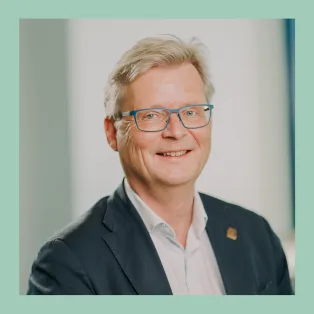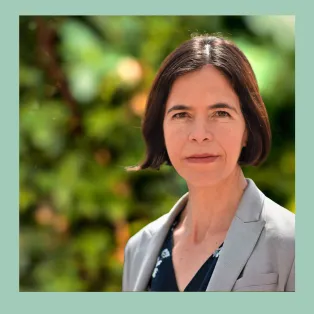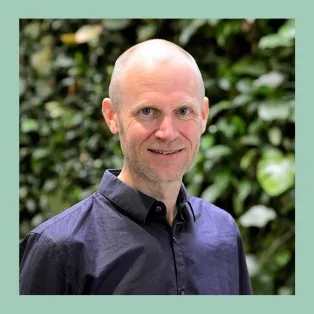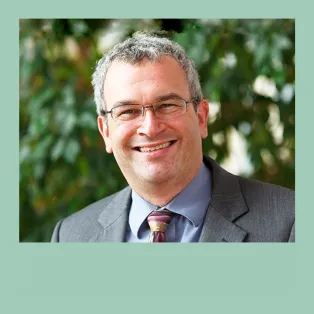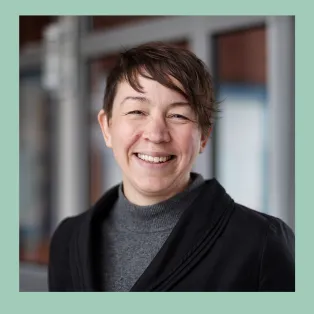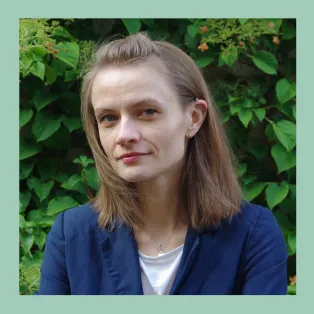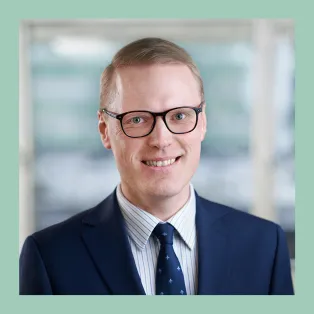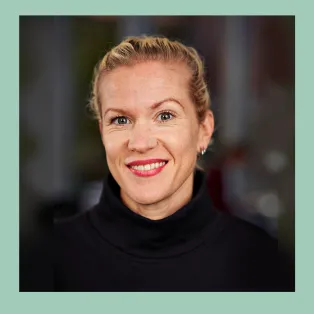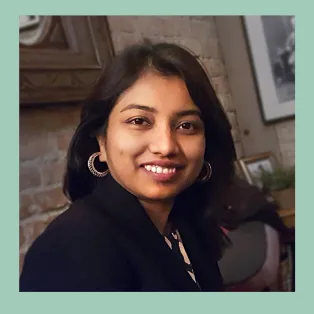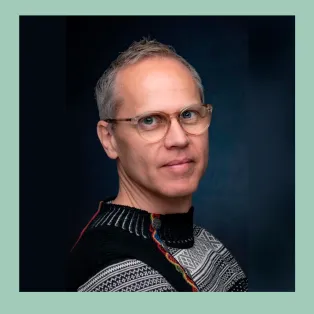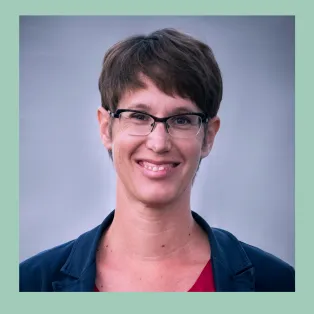Knowledge for Sustainable Development 2025 - Breaking barriers to climate solutions.
December 9, 2025 at AF-borgen in Lund and online

Welcome to this interdisciplinary research conference on Breaking barriers to climate solutions. The conference aims to encourage knowledge sharing and dialogue between Lund University and the University of Cambridge.
Detailed programme
Click here to see a detailed conference programme
The IPCC makes it clear: human-driven climate change is already having a major impact on extreme weather, ecosystems, and people’s health and livelihoods worldwide. The good news? There are plenty of mitigation and adaptation strategies available across all kinds of systems. The challenge is breaking down the barriers - so how do we scale up what already works and innovate to go even further?
At the conference, we will broaden scientific horizons through interactive roundtable discussions and dialogue between disciplines and universities, aiming to better tackle some of the key challenges of our time. In the morning, the themes include:
- Energy transition: To combat climate change and improve energy security, a shift in how energy is produced is needed. But how do we get there and how do we make an energy transition that is also fair?
- Climate and biodiversity: Climate change and biodiversity loss are interconnected. A change in one will affect the other. But they are also intertwined with our social, cultural and economic processes. How can we better handle the link between biodiversity, climate change and people?
- Adaptation, loss and damage: The changes in climate is and will have long lasting effects on people's lives and on the planet. It affects our health, our livelihood and our surroundings. And it hits differently between communities and people. How can we address these changes and what can be done about it?
In the afternoon, the interactive discussions will continue, but with a focus on the bigger picture and how disciplines can interact to find new solutions. There will be a panel discussion on A sustainable future - at what cost? with panelists from both Lund University and University of Cambridge, as well as two parallel roundtable discussions titled:
- No space to spare - how to balance natural space and societal needs?
- Understanding future risks in a changing climate and society.
The conference will end with a mingle, were we serve 'glögg' (unalcoholic mulled wine) and some light snacks.
The registration is now closed!
The registration closed November 27.
It will be possible to attend the conference both on site and online.
Time for the event
9 December 2025 08:30 to 17:00
Location
AF-borgen, Sandgatan 2, Lund and online
Target group
Researchers associated with Lund University and University of Cambridge, as well as other researchers, stakeholders, and students who wish to join the discussions and share their views are invited to learn more about research conducted at Lund University and University of Cambridge.
Language
English
Contact
ylva [dot] van_meeningen [at] cec [dot] lu [dot] se (ylva[dot]van_meeningen[at]cec[dot]lu[dot]se)
The conference is organised by the Research Board and the Sustainability Forum at Lund University in collaboration with Cambridge Zero at University of Cambridge.
Learn about Cambridge Zero | Cambridge Zero webpage
A collaboration between Lund University and University of Cambridge
Conference Programme
08:30-09:10 Check-in and mingle with coffee
09:15-09:30 Opening of the conference
Welcome greetings from University management of Lund
Venue: Lilla salen
09:30-10:10 Keynote presentation
Lars J Nilsson, Lund University - EU climate targets, climate-related research and deep decarbonisation
Venue: Lilla salen
10:10-10:30 Short break to divide into Parallel sessions
10:30-11:45 Roundtable discussions
Energy transition
Ewa Marek and Elna Heimdal Nilsson
Climate and biodiversity
David Edwards and Claudia Ituarte-Lima
Adaptation, loss and damage
Nazia M Habib and Åsa Knaggård
11:45-12:00 Short break
12:00-12:30 Keynote presentation
Harro van Asselt, University of Cambridge - The evolving role of law in strengthening climate action.
Venue: Lilla salen
12:30-13:30 Lunch break
13:30-14:40 Panel discussion ‘A Sustainable future-at what cost?’
Keynote: David Reiner
Panel: Ewa Marek, David Edwards, Fredrik NG Andersson, Moa Petersén.
Venue Lilla salen
14:40-15:00 Short break to divide into Parallel sessions
15:00-16:00 Roundtable discussions
No space to spare: how to balance natural space and societal needs
Introduction speaker: Rekha Bhangaonkar - Farmer Participation in Agri-Environmental Schemes (AES): Perspectives of Farmers from the Fens Region of the UK
Understanding future risks in a changing climate and society
Introduction speaker: Per Becker - Our dynamic risk landscape.
16:00- Summary of the conference + Glögg mingle
Keynote Speakers
Lars J. Nilsson is a Professor and Head at the Department of Technology and Society, Faculty of Engineering at Lund University. His research revolves around decarbonization transitions, including climate and industrial policy. He was coordinating lead author for the Industry Chapter in IPCC AR6 WGIII report (2022) and he is a member of the European Scientific Advisory Board on Climate Change.
Harro van Asselt is a professor and holds the Hatton Professorship in Climate Law at the University of Cambridge. At Cambridge he is also a Law Fellow at Hughes Hall. He is also a Professor of Climate Law and Policy at the University of Eastern Finland Law School, and an Affiliated Researcher with the Stockholm Environment Institute. Professor van Asselt has published extensively in the field of climate change law and policy, covering developments in international, European, and national climate law and governance. He has contributed to high-level reports informing policymakers, such as the IPCC’s 6th Assessment Report and UNEP’s Emissions Gap and Production Gap reports.
Harro van Asselt | University of Cambridge Department of Land Economy
Speakers Parallel sessions
Dr. Claudia Ituarte-Lima is an international public lawyer and scholar with over two decades of experience at the intersection of human rights, biodiversity, and climate change law and policy. She serves as Thematic Lead and Senior Researcher at the Raoul Wallenberg Institute and as Director of the Global Network for Human Rights and the Environment. She has contributed as an expert to the Intergovernmental Platform on Biodiversity and Ecosystem Services (IPBES) and the European Parliament.
David Edwards is Professor of Plant Ecology, and Head of the Tropical Ecology and Conservation Group in the Department of Plant Sciences at the University of Cambridge. His research focuses on the conservation of tropical forests and biodiversity, and he is the founding Director of the Centre for Global Wood Security. His group uses intensive field study, remote sensing, global mapping, land-use modelling, and environmental economics to tackle key questions in forest ecology, management, and conservation, with a focus on issues of global policy significance.
David Edwards | University of Cambridge Department of Plant Sciences
David Reiner is a political scientist and Professor of Technology Policy at Cambridge Judge Business School, where he is Assistant Director of the Energy Policy Research Group. His research focuses on energy and environmental policy, with a particular emphasis on the politics of climate change and the social acceptability of low-carbon or net-negative mitigation options for achieving net zero targets. He is an advisor to government, industry and non-governmental organisations on energy and environmental policy, and is frequently interviewed in national and international media.
David Reiner | University of Cambridge Judge Business School
Elna Heimdal Nilsson is a Professor at Combustion Physics at Lund University and Head of Department at School of Aviation, as well as Assistant Director of CESTAP. Elna is involved in research concerning chemical kinetics in combustion processes. The research is mainly development of chemical kinetics models of a range of fuels, fossil fuels as well as biofuels.
Ewa Marek is Associate Professor in the Department of Chemical Engineering and Biotechnology at the University of Cambridge, where she leads the Energy Reactions and Carriers Group. Her research focuses on sustainable and renewable ways to generate heat, power, and chemicals, using her expertise in the power and chemical sectors to forge pathways towards a net-zero future. She also investigates the production, application and processing of new fuels and energy vectors.
Dr Ewa Marek | Department of Chemical Engineering and Biotechnology
Fredrik N. G. Andersson is Associate Professor of Economics at Lund University. His research examines climate change, industrial transformation, and the long-term evolution of economic policy. He explores how historical transformations can inform the transition to a low-carbon economy and how learning and institutional change shape pathways of change. Through both research and policy engagement, he contributes to debates on how governments and markets can work together to steer transitions that are economically viable and environmentally sustainable.
Moa Petersén is an Associate Professor in Digital Cultures at Lund University. Her research explores how technology is implemented, imagined, and integrated into everyday life, focusing on the social and ethical challenges that accompany technological change. Petersén examines how new systems—such as cashless payment infrastructures—affect inclusion, accessibility, and individual rights. She is particularly interested in the social consequences of digitalization, asking who is empowered or excluded when new technologies are adopted.
Professor Nazia M. Habib is the Founding Director of the Centre for Resilience and Sustainable Development (CRSD), a transdisciplinary action-research initiative rooted in the Departments of Land Economy and Engineering at the University of Cambridge. Her research integrates complexity science and political economy to develop co-creation frameworks and participatory action-research methods that strengthen governance, innovation, and sustainable investment in conditions of uncertainty and resource constraint. Professor Habib received the Claydon Prize for the best PhD thesis in Economics at Cambridge and has authored three books and over seventy publications on resilience, governance, and sustainable systems. Her book Biofuels, Food Security, and Developing Economies (Routledge, 2016) was ranked among the top three most influential books of the year by Food Tank.
Per Becker is Professor of Risk and Sustainability at Lund University, Professor of Leadership and Command & Control at the Swedish Defence University, and Extraordinary Professor of Environmental Sciences and Management at North-West University. His research interests focus on the systemic interactions between the physical environment, social organisation and social behaviour in relation to societal safety, security and sustainability. Especially on issues of governance, collaboration, risk and vulnerability, on what makes society resilient to disturbances, disruptions and disasters, and on capacity development as an intentional process for increasing such resilience.
Rekha Bhangaonkar is an agricultural economist and Postdoctoral Research Associate in the Department of Land Economy at the University of Cambridge. Her research explores the use of natural resources and its implications for resource use sustainability and farm incomes. Her current project, Landscape Regeneration Solutions to the Interlinked Extinction and Climate Crises that Support Sustainable Development, examines the adoption of agri-environmental policies in the Fens, one of England’s most intensively farmed regions.
Åsa Knaggård is an associate professor in political science at Lund University. Her research is about decision making and policy processes, with a particular focus on the relation between science and politics. She works with projects on climate adaptation and how responsibility can be distributed between different societal actors. Focus is on Sweden and the role of public vs. private actors and the national vs. local level, as well as the distribution between sectors.
The conference is organised by the Research Board and the Sustainability Forum at Lund University, in collaboration with Cambridge Zero, University of Cambridge.
- Erik Mackie, Head of Research Engagement, Cambridge Zero, University of Cambridge
- Fariborz Zelli, Professor, Faculty of Social Sciences, Lund University
- Jenny Palm, Head of department, The International Institute for Industrial Environmental Economics (IIIEE), Lund University
- Jessica Almqvist, Deputy dean, Faculty of Law, Lund University
- Margaret McNamee, Deputy dean, Faculty of Engineering, Lund University
- Stephen Davison, Director of Strategy, Cambridge Zero, University of Cambridge
- Stina Lundkvist, Project manager, Sustainability Forum, Lund University
- Ylva van Meeningen, Research coordinator, Sustainability Forum, Lund University




